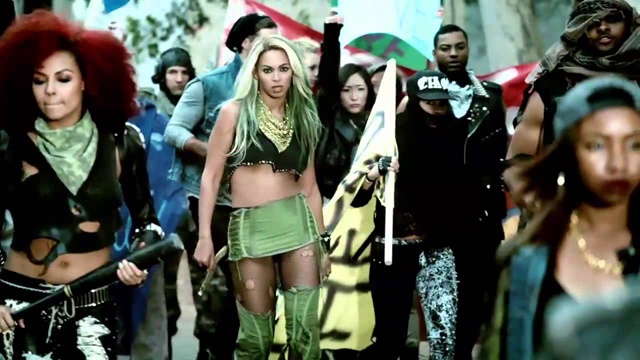
Like everyone else on that weekend in December when Beyoncé dropped her surprise self-titled album, I called everything off, gathered the family and friends, and watched the whole visual album while drinking cocktails. We were only into the second video, “Ghost”, when a friend interrupted the music with a daring question: Is Beyoncé trying to start a Marxist revolution?
This was funny at first, completely absurd really. I highly doubt that Beyoncé knows much about Marxist theory (and I’m not going to pretend that I do) because she didn’t seem to really understand the full extent of the meaning of veganism and Beyoncé symbolizes everything that is capitalist, but there is something uncannily similar between the way she released the album and the way that real revolutions come about. She activated a network of powerful individuals (everyone from directors, producers, and songwriters to stylists, key grips, and location scouts) and gave them each a singular task without revealing the whole multi-layered strategy of deployment (a.k.a. world domination). And then she dropped it all on us when we were least expecting. It was the complete overthrow of a flailing, tyrannical record industry.
Could something or someone in contemporary pop culture really start a revolution? The idea doesn’t seem completely implausible. Historically, songs or styles of music have played large roles in revolutions. Music has always spurred people into action whether that be dancing or kissing or weeping, so if given the right sentiment, perhaps people could be inspired to pull off more drastic political actions.
But what would a revolution inspired by pop music even be about? There’s not really a consistent message in pop music today; there is barely a consistent idea across a whole album. If we’re still talking about Beyoncé (and we’re always talking about Beyoncé), in one song on the new album, she’s quoting feminist writer, Chimamanda Ngozi Adichie, and in the next she’s pleading, “Take all of me, I just wanna be the kinda girl you like.” Despite her recent essay on the myth of gender equality, Beyoncé's feminism often seems more about her own self-expression than that of others. Yes, artists and musicians have many aspects to their personality that need expressing, but Beyoncé YouTubing feminist videos or getting naughty in the backseat of a limo with her husband won’t get people to take to the streets.
The only thing to do is to turn to another pop star, no… pop legend for some inspiration: Madonna. Late last year, she didn’t release an album but a #secretprojectrevolution. Sadly, barely anyone talked about it, but the “secret project” is really an initiative called Art for Freedom, where Madonna curates art pieces from around the world that showcase freedom of expression and protest the persecution of anyone’s race, gender, ethnicity or religious beliefs.
Madonna kicked off the project with a 17-minute video that screened around the world in different venues simultaneously. The video looks like a cross between a Vogue fashion spread and the dreams of a prisoner thrown into solitary confinement. Whether you like Madonna or not, or think she’s relevant or not, or find her arms terrifying or not, the images are chilling and beautiful, and her off-kilter, stream-of-consciousness monologue takes more cues from revolutionary theory than The Hunger Games. Here are some random samples that get me riled up and ready to take to the streets in my booty shorts:

